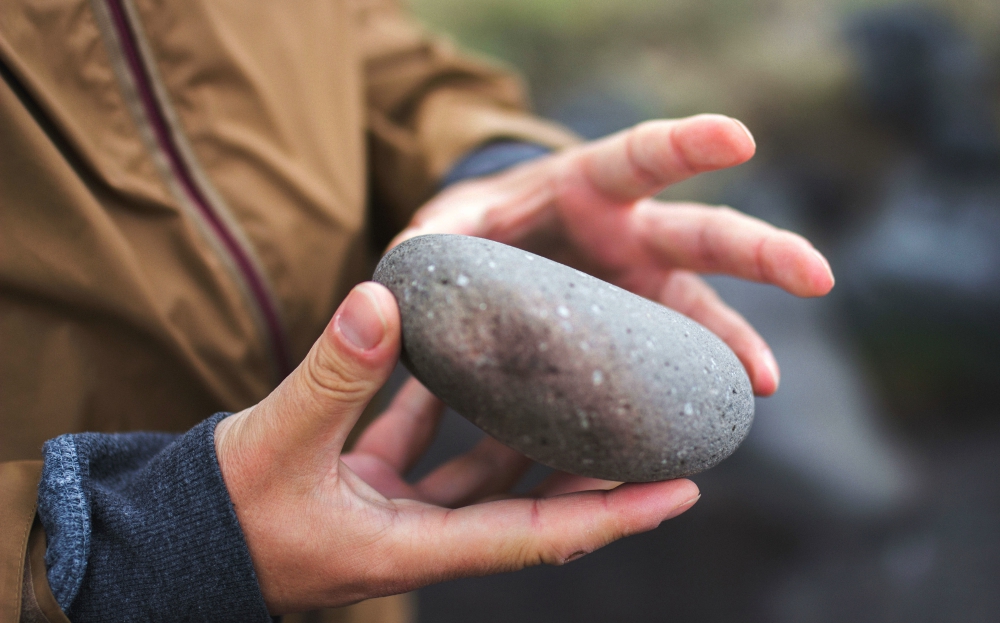Recently, I wrote about a fascinating study that is just now available to researchers 50 years after it was completed.
In 1967, Sr. Marie Augusta Neal of the Sisters of Notre Dame de Namur conducted a survey of American women religious in active ministry as the effects of the Second Vatican Council began to reverberate through the Catholic Church.
It was a massive study: Neal's survey was mailed to 157,917 sisters in 398 orders, and 89 percent of recipients responded to the questionnaire, which asked the sisters for their individual opinion on topics such as theology, social changes and the Vietnam War and led to detailed analysis of religious life at the time.
Neal, a sociologist, conducted the study to see how ready sisters were for the renewal Vatican II called for. Each congregation surveyed would get the results from its members who had taken the anonymous survey, helping leadership determine whether to charge ahead with reform or to slow down and better prepare sisters for the change that lay ahead.
But this treasure trove of insight into American women religious at a tumultuous time in the church and in society has also been used as yet another weapon in the culture war that never seems to end.
As an article about the conversion project in the Cushwa Center's newsletter, "History of Women Religious," explains:
Journalist Ann Carey's Sisters in Crisis: The Tragic Unraveling of Women's Religious Communities (Our Sunday Visitor, 1997) collects sisters' and others' criticism of the 1967 survey in a chapter called "The Many Faces of Indoctrination" — suggesting that Neal and her "change-oriented" employers at the [Conference of Major Superiors of Women, later renamed the Leadership Conference of Women Religious] used leading questions to promote "a concept of renewal that had been conceived by an elite group of sisters." Rather than impartially assessing sisters' attitudes, detractors accuse, Neal set out to nudge respondents into discontent with convent life.
Is there nothing in the world that we cannot turn into "proof" that we are right and someone else is wrong?
I can make a great argument about how Carey is doing exactly what she accuses Neal of by taking a neutral concept and bending it to fit her own worldview. I could show how Carey and others subscribe to a mindset that not only is change part of Satan's conspiracy to lead us astray, but even asking questions or considering alternatives is itself an evil.
And I would be just as guilty myself if I did that, and not just because in this particular case, experts agree that Neal's questions likely did change some sisters' attitudes because they had likely never been asked for their individual opinions before. So when suddenly they were asked about social change and theology, it opened new possibilities many had never considered.
The bigger problem would be that I would — again — be falling into the trap we now embrace so completely: Everything is either black or white, good or bad, right or wrong, and there is no in-between, no possibility for alternatives, no situation in which our judgment should change.
Vatican II? Bad for the church. President Donald Trump's proposed budget? Bad for America. Congregations of sisters that embraced renewal? Wrong. Dismantling federal regulations? Dangerous. This pope? Good. That pope? Bad. My beliefs? Perfect. Yours? Disastrous.
We can (and do) go on forever with this madness. Whether it's in the news or on social media or in our daily lives, it seems everything and everyone falls into one of two boxes.
But in my two decades as a journalist, I've learned that the best stories are the ones that are not black and white. The most interesting people are those with shades of gray in their lives. That everything is better with nuance.
And, of course, there is the reality of being human. Am I only a good person those first few minutes after I walk out of the confessional after receiving absolution? Am I nothing but bad when it's time to go back to the confessional?
What about the Samaritan woman at the well? Good or bad? What about Zacchaeus? Bad when he was in the tree but good when Jesus went to his house?
Could the Pharisees be saved? Could Saul, whose name changed to Paul and who wrote much of the New Testament? What of the woman accused of adultery that Jesus saved from stoning? Or the men with stones in their hands, ready to kill her?
This is bigger than "Judge not, lest ye be judged." This is wrecking our society, it is hurting the church, and it is killing us.
It's time for all of us to put down the stones.
Remember, links, tips and accounts of the response to any crisis anywhere in the world are always welcome at dstockman@ncronline.org.
[Dan Stockman is national correspondent for Global Sisters Report. Follow him on Twitter or on Facebook.]

